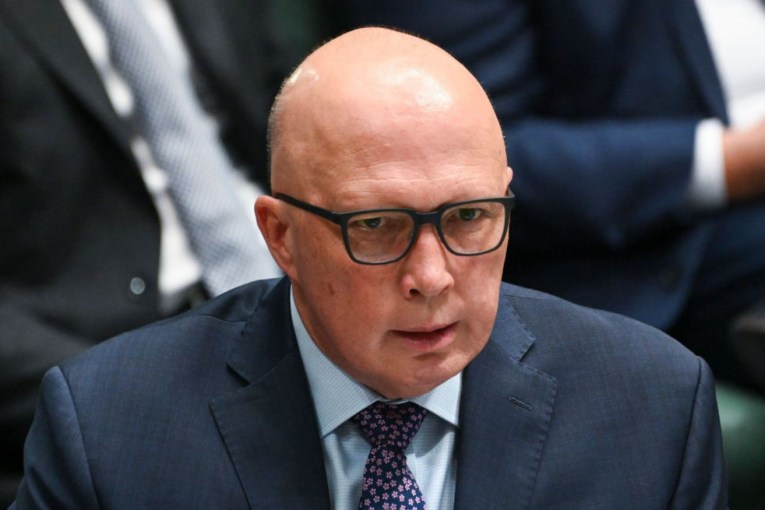Pleasing none, Albanese presents consensus position on rising power bills; gets tentative tick

Sweeping aside divisions within caucus – and cabinet – and the threat of a broader split, never mind the threat of a well-resourced campaign from the mining lobby, Prime Minister Anthony Albanese has ultimately stepped in for consumers on energy, but limited the fallout to industry.
One person familiar with national cabinet negotiations ahead of Friday’s meeting said the Albanese government was urging NSW and Queensland to implement a cap on the domestic coal price of $125 a tonne.
It will put a price on gas at $13 a gigajoule.
That is all to stop a forecast bill increase during the next two years of a cumulative 50-plus per cent.
But it also came as war overseas has created perverse incentives where the profits of often foreign-owned companies came at the expense of Australian consumers, Treasury Secretary, Stephen Kennedy, said.
Unhappy states
The government’s policy push has not yet been put officially to national cabinet. However, NSW and Queensland – and even South Australia (a gas state, not coal states like the other two) – are not pleased.
The states want compensation, plain and simple.

‘No decision’ on compensation, the Treasurer says.
Treasurer Jim Chalmers said no decision had been made about shelling out for compensation, but said he was “prepared to be reasonable” in negotiations.
Has it been bad for industry for the Albanese government to undertake a “targeted intervention”?
It certainly claimed so, even though the Minerals Council of Australia was curiously reticent.
“Has the federal government announced a coal cap?” a spokesman said sarcastically, when asked if the MCA would take the measure on the chin.
A Santos spokeswoman said on Saturday caps were “exactly the opposite of what we need right now” and would “remove the incentive to invest in more supply”.
But Tony Wood, Australia’s foremost energy expert, said only a fraction of the gas supplied in Australia would be affected. It would not include that caught up in long-term contracts or being solver overseas; namely the vast majority of locally produced gas.
“That’s a number that 12 months ago they would have leaped over [each other] to be able to get so [they] can hardly argue that it’s going to send them broke … [or] that the entire Western world is going to come to an end as we know it,” he said of the industry’s reaction.
Call to open up company books
Mr Wood did note that setting a cap was tricky. He counselled the federal government to use the Australian Competition and Consumer Commission’s powers to open up company books to settle on a level of reasonable profit before the war in Ukraine and other factors sent the market haywire.
Mr Wood said getting price caps right was a difficult undertaking, not just because some price rises predated war in Europe. But he thought the government had the balance basically right on current evidence.
It means that royalties for Queensland and NSW of $9 billion a year from fossil fuels will mostly be unaffected because they come from coal sold overseas – and at rates Victorian Premier Daniel Andrews recently noted were akin to profiteering from Vladimir Putin’s excesses.
“The coal industry itself has said, we’re only selling less than 10 per cent of our coal under the uncontracted market anyway, and it wouldn’t make much difference,” Mr Wood said.
“About the same goes for gas.”
‘Windfall profits’
The issue of windfall profits, Mr Wood said, basically applied only very narrowly to electricity generation infrastructure companies, which have benefited from rising prices.
Queensland has argued loudest against the plan because it still owns those assets, and those profits, unlike other states.
Mr Wood said the argument rested on a morally questionable position: “The Queensland government does, and they have been, making windfall profits, and those windfall profits will be significantly reduced as a result.”
The extraordinary sight of a modern Labor government and proponents of modern Labor economics calling for a price cap reflects international circumstance.

The war in Ukraine has escalated global energy prices. Photo: Getty
The dislocation – caused mostly by the war in Ukraine – to the global energy market has led to runaway prices. That has compelled political parties, such as the Greens and more recently Labor, to call for action.
Ideas such as the super profits tax espoused by Nobel prize-winner Joseph Stiglitz are incompatible with Labor’s federal election pledge that it would not levy new taxes.
Opposition energy spokesman Angus Taylor lashed Labor’s “thought bubble” energy policies, warning a cap on coal and gas could lead to supply shortages and blackouts.
“If you’re a gas or coal producer, why would you want to sell into a domestic market at a fraction of the price you can get in the export market?” Mr Taylor said.
Mr Chalmers said the war in Ukraine and the Coalition’s “policy chaos” meant Australians were “paying a really hefty price” for energy.








